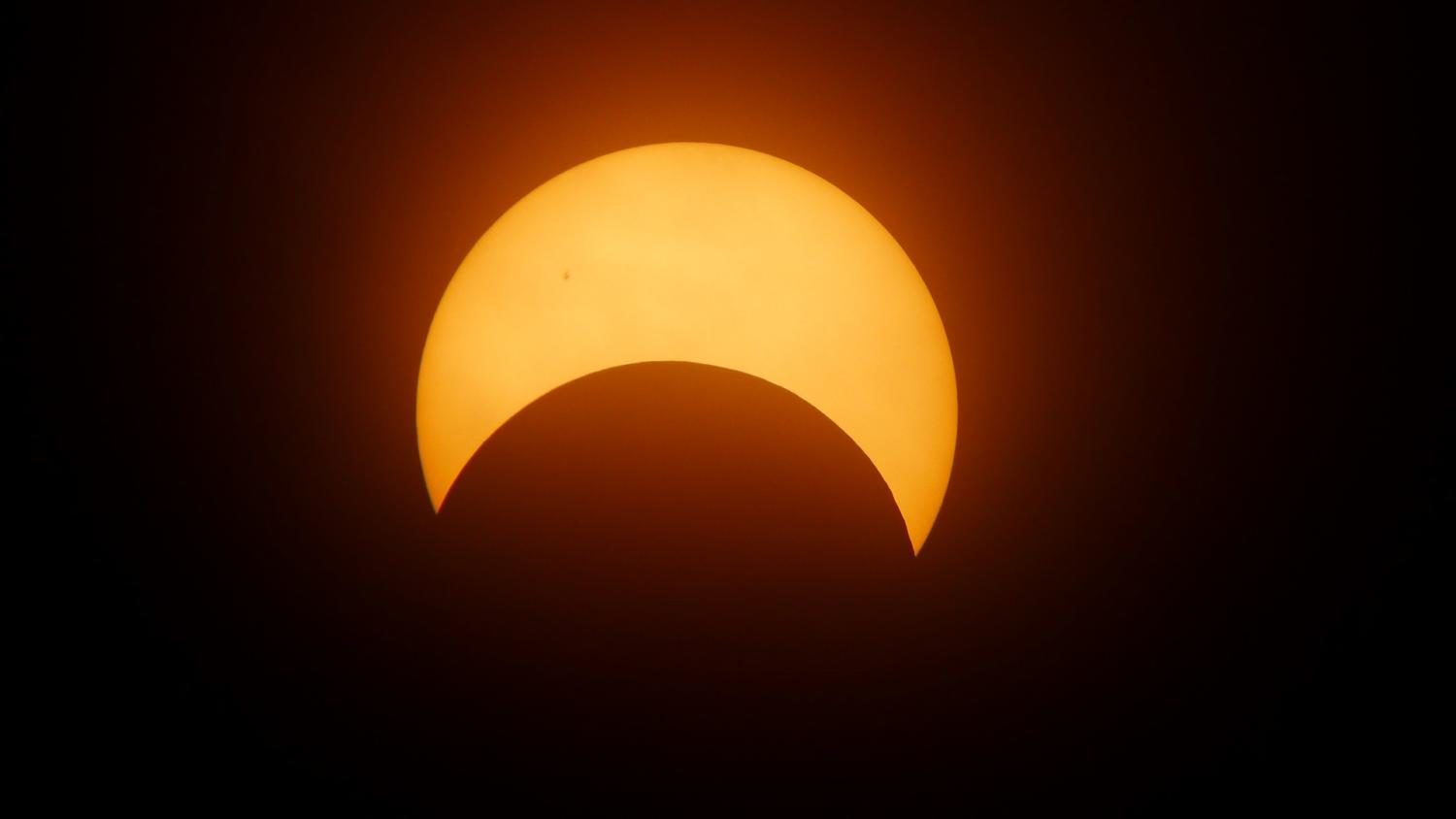Clouds eclipse students’ solar expectations
On August 21, students prepared for what was supposed to be the opportunity of a lifetime. Instead, as hundreds of students looked at the sky, they saw mostly clouds.
Vernon Hills students exited the building after 6th period and headed out to watch the first total solar eclipse to cross both coasts of the United States mainland since 1918.
Some students, including David Leshchiner (11), traveled to the path of totality, where they were able to see the full effects of the eclipse. Leshchiner took the day to go to Columbia, Mo., which is about 125 miles from St. Louis.
Leshchiner said that the phenomenon looked “like fast-forwarding from 2 p.m. to 8 p.m. on a summer night.”
Students who remained in Vernon Hills were disappointed that they did not have the same luck as Leshchiner. Where Leshchiner was able to view the eclipse in totality, students at Vernon Hills High School viewed an 87% eclipse that was largely covered by clouds.
Mr. Prosise, Science Department Supervisor, explained how the cloud cover affected the eclipse.
“The cloud cover was acting like a diffuser or a filter. The clouds were illuminating the lunar light that was coming through, which lit up our whole sky,” he said. “So had those not been there, and had we only relied on the 13% of the light shining through, it would’ve been noticeably darker.”
While some students still seemed to enjoy the experience, others were messing around with their friends and enjoying the time away from class.
“So many students were disappointed,” Ethan Schuster (11) said. “People were just on their phones in the middle of it. During it, they weren’t even looking up. No one really cared.”
Social Studies teacher Mr. Friedrich agreed that many of the students were disappointed by the eclipse, attributing this to students’ expectations.
“I think some people wanted it maybe to be something more than it was. It’s just a cool thing,” Friedrich said. “Unfortunately, it was cloudy, but I think it was cool to take a moment to recognize your place in the universe.”
As Ziggy Jezorski (11) put it, “We’re not gonna see this again until 2024.”
When Jezorski put her glasses back on, she gazed up at the sky and said, “Look, it’s already gone.”

